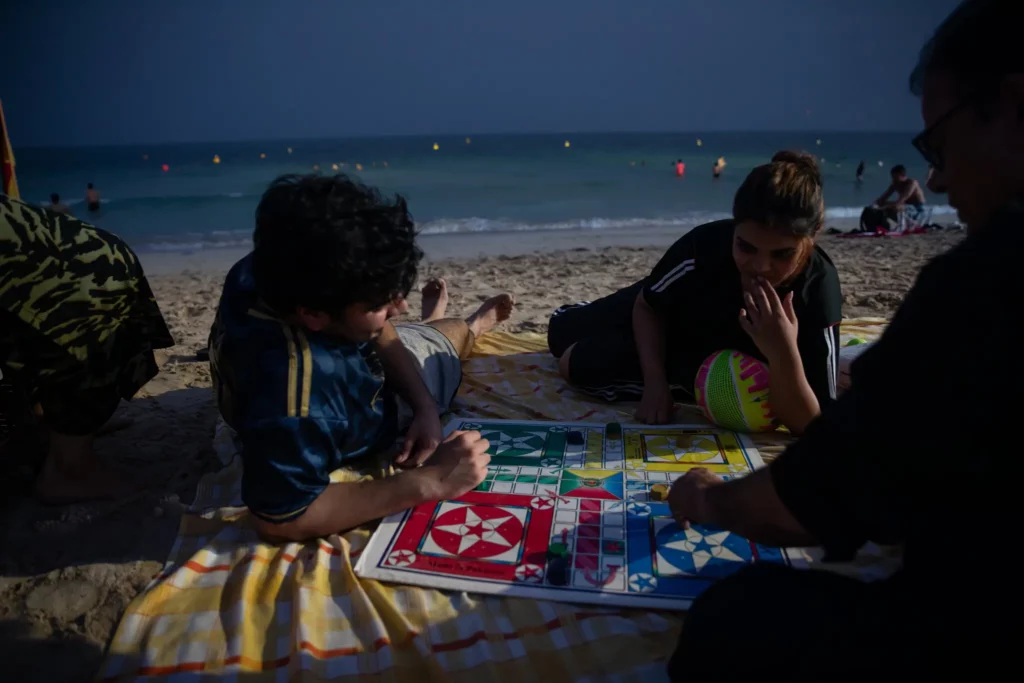Toddlers squealed, the sea roared and a portable speaker abandoned on the shore played a love song. Perched on a giant inflatable hot dog, a child paddled through the shallows.
This could have been any beach anywhere on a summer weekend, if you closed your eyes tight enough to shut out the light of the moon. But it was midnight on a recent Monday. The lifeguards were working a night shift, and blazing spotlights were trained on the water, staining it an eerie, luminescent turquoise.
Even at this hour, it was 90 degrees, with 79 percent humidity. That is pleasant, relatively speaking, for summer in Dubai — a city of glistening skyscrapers and bustling ports in the United Arab Emirates, an immigrant hub where citizens are the minority.
“It’s so hot we can’t come to the beach during the day,” said Ramshah Ahmed, 36, a Pakistani teacher who had traveled to Dubai to attend a wedding and spent most of her days inside air-conditioned malls. She was delighted to find a beach open at night so her children could burn off some of their energy; newcomers were still arriving on the sand as she and her son whacked a pink badminton shuttle back and forth.

Each year, as the suffocating heat of summer creeps in, Dubai’s beaches gradually grow emptier. Weather that would constitute a deadly heat wave in Europe or the United States is the norm in the Arabian Peninsula, and in August, Dubai feels like a steam room. But the coast comes alive long after sunset, when joggers and bicyclists emerge and families set out picnics on folding tables.
At midnight or even 4 a.m. on any given day, the beach in Umm Suqeim — an upscale neighborhood on Dubai’s coast — is busy. It is the favorite of several locations that the Dubai municipality has designated as “night beaches,” where swimming is allowed 24 hours a day and spotlights illuminate the water.
Nocturnal schedules are one of many cultural adaptations to extreme heat that could someday spread to places like Los Angeles and Miami as climate change upends lives around the world. The hosts of this year’s COP28 talks on climate change, the Emirates is a major oil exporter with per capita emissions among the highest in the world. But it’s also one of the most vulnerable places as temperatures rise.











